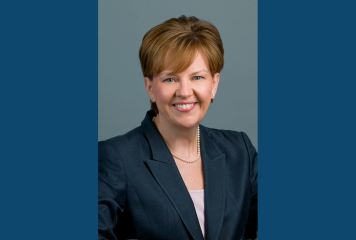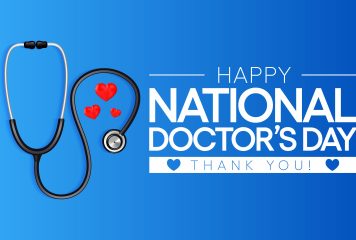Dr. Deidra Crews is a board certified nephrologist, serving on ABIM’s Nephrology Board. She is Professor of Medicine in the Division of Nephrology at Johns Hopkins University School of Medicine, where she also serves as Associate Director for Faculty Development in the Division of Nephrology. She is jointly appointed in the Johns Hopkins School of Nursing and holds faculty appointments with the Welch Center for Prevention, Epidemiology and Clinical Research, the Center on Aging and Health and the Center for Health Equity, where she is Associate Director for Research Development.
Dr. Crews has published several articles on racial disparities in health outcomes for kidney patients, and has worked tirelessly to promote health equity in communities of color, especially during the pandemic.
Why did you choose to specialize in nephrology?
I chose nephrology for several reasons, but the experiences that first piqued my interest in nephrology were in my second year of medical school. I really loved what I learned about kidney physiology and all its different functions.
You recently co-authored an article in Nature Reviews Nephrology that highlights racial disparities in kidney health outcomes and proposes some action points. Last summer, ABIM and the ABIM Foundation issued a public statement denouncing racial injustice, and established its first ever Committee on Diversity, Equity and Inclusion (DEI).
Tell us about the work you do in your community to combat racism and racial disparities in kidney care.
For most of my career, I have worked to understand and address disparities in kidney disease and in hypertension. I think that there are numerous things we can do with respect to eliminating these disparities. This past year, the COVID-19 pandemic and high-profile acts of racism have shaken the core of our country and the world over. Dual pandemics have heightened an awareness of the disparities in our system and brought about some new initiatives. What I hope happens is more people examine their own nexus of influence and take the steps they can to provide more equitable care to the patients they serve. I hope researchers carefully take a look at the questions they ask and the potential impact for people in marginalized communities and people of color. I want to see people collectively, in their own settings, taking steps toward equity.
On the research side, I am working on promoting equity in kidney outcomes. I focus on doing studies that address structural inequities that exist. For example, one ongoing study we are conducting addresses some of the structural inequities that exist in the food system in the US. There is a large proportion of low-income communities, and predominately Black communities, that do not have access to healthy food sources. There aren’t supermarkets or shops in their neighborhoods where they can buy healthy food, and this is something that can contribute to the development and management of kidney disease. We are conducting a clinical trial testing the impact of providing healthy foods to low-income African Americans with kidney disease and coaching them on nutrition and making healthier choices.
I am also doing advocacy work with respect to calling attention to how vulnerable kidney patients are to COVID-19, and its mitigation efforts. Dialysis patients must come into centers three times per week for treatment, making them vulnerable to being exposed to COVID during their transportation to the center, or even at the center. We have also seen, because of COVID-19, a number of reduced services, including for kidney patients, such as placement of vascular access for hemodialysis. In my advocacy work, I try to call attention to those things and hopefully bring them to the ears of policy makers who can make change in a more forward-thinking way.
In 2019, an executive order called for a number of initiatives to improve the way we deliver care for people with kidney disease, including promoting access to transplantation and more access to home dialysis. I hope the new administration will carry forward these initiatives and enhance them to ensure equity. So, my advocacy work has been focused on trying to advance kidney health equity, and I have tried to be engaged and speaking around those policies and advancing those initiatives.
Is it safe for kidney patients to get the COVID-19 vaccine?
Most physicians would say yes and encourage their kidney patients to get the vaccine. The reality is that the three vaccines available in the US did not detail in their clinical trial publications whether kidney patients were included, so there’s no specific data to point to. That being said, the potential benefits seem to outweigh the risks. More than 70 million people in the country have received at least one dose of the vaccine, with the overwhelming majority doing just fine with it. So yes, I believe kidney patients should receive the COVID-19 vaccine.
Is there anything you would like to accomplish in this area during your time as a member of ABIM’s Governance ?
ABIM, like a number of organizations, has a wonderful and large platform and therefore the ability to really promote work surrounding health equity. Given ABIM’s focus on promoting the highest professional standards among internal medicine physicians, there’s an opportunity there, in the programming, to both educate diplomates about health disparities and to advocate for health equity.
What would you like physicians who work with kidney patients of color to consider that might not cross their minds?
Consider the structural factors that play a role in those patients’ ability to engage in their health care. Too often physicians will look at what they see in terms of their interactions with patients of color and their experiences in the health care setting, and they will assume whatever is happening is “cultural” in origin. For example, they may think that a patient is just not willing to change their diet and just leave it at that. But it’s often far more involved than that. Kidney professionals must recognize the impact of systemic inequities in kidney health and social factors that adversely impact kidney outcomes in many communities. I’ve been writing and presenting on structural competency, which calls on us to understand the context in which our patients are living, barriers they may be facing, and rearticulating what we may have in the past referred to as being “cultural” differences. We need to take into account the situation in which they are living when we develop our treatment plans.
For example, let’s look at the vaccine situation in the country. Some patients of color may be hesitant to receive the COVID vaccine, however, most of what I’m hearing centers on the belief that there is historically a culture of mistrust there. Structural competency would require we actually consider not only historic experiences that Black Americans have had that present-day Black Americans may have heard or read about, but also present-day experiences that those individuals may have when they interact with the health care system where they may receive unfair treatment. So, when we consider those structural barriers, that requires us to go about those conversations in a different way.
Can you expand on that thought?
Coming into the pandemic, there were reports of people presenting with symptoms who tried to undergo COVID testing only to be told they didn’t have the right set of symptoms and being turned away, in some cases to great detriment because they were not diagnosed in a timely way. There are also many examples in maternal health, where, for Black women, after delivering a child they have may have symptoms that are not taken seriously and they suffer. Serena Williams after childbirth is an example of this. The underpinning of a lot of these experiences is a lack of being heard and the system we are in not listening to concerns of these individuals, and this is what leads to a sense of mistrust that carries on after these episodes.
African Americans are dying from COVID at an alarming rate. Do you think COVID-19 could result in new solutions that will reduce health disparities? Ideally, what would you like to see happen?
I am optimistic that we’ll see meaningful change. I do worry that we could fall into a trap of there being an episodic concern that’s talked about but ultimately results in no change. But I am optimistic. I would really like to see changes made in a number of areas, not only the care we deliver to patients and enhanced structural competency but also great focus on the workforce providing care to these patients and being inclusive of many communities of color in our ranks. We need more individuals of color included in the field of medicine but also to ascend as leaders in medicine.
Do you find your African American patients and family members are hesitant to get the vaccine?
What I am mostly hearing is that people would like to get the vaccine but can’t access it. They have trouble navigating the website and wish they could call. They can’t get appointments, they can’t get to the vaccination centers. The historic narrative is Black people mistrust the system, but lack of access is what I am hearing. I got the vaccine, my parents got it, my grandmother, my aunt, all got the vaccine. But among our community partners at our Center for Health Equity at Johns Hopkins, I am hearing that access is the primary problem, not fear of the vaccine. People want to get it, they just can’t figure out how to get it.
How has COVID-19 affected your practice and what has surprised you about the virus?
It has meant spending more time at home when not on clinical service at the hospital; it has meant greater precautions in the hospital; and, it’s been challenging to adapt to the way I like to practice seeing patients, in terms of the time I spend with them. It is difficult with a mask to pick up on nuances of speech and that’s been a bit challenging.
I have learned that our system can adapt faster than I thought it could when it has to. That gives me a lot of hope and optimism when we think about things in terms of health equity. We have been led to believe it takes too long to change rules in a way of making meaningful change, and we’ve proven this year that that’s not the case. When a change has to be made because of a common enemy, we can make the change. I would love for the common enemy to become health disparities.
How do you maintain a good work/life balance?
That is a work in progress. I play tennis, I go for long walks and I spend time with my family.



